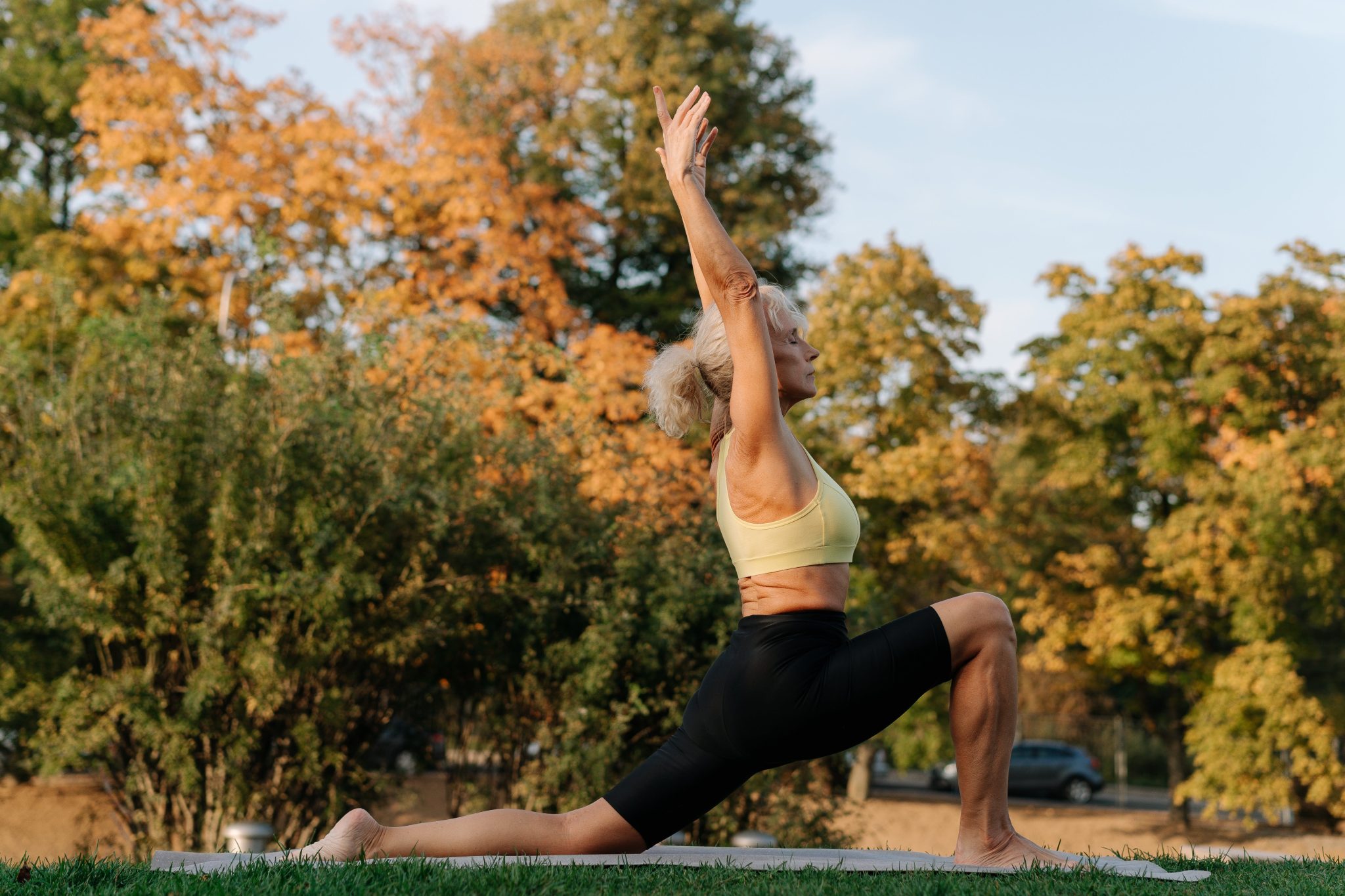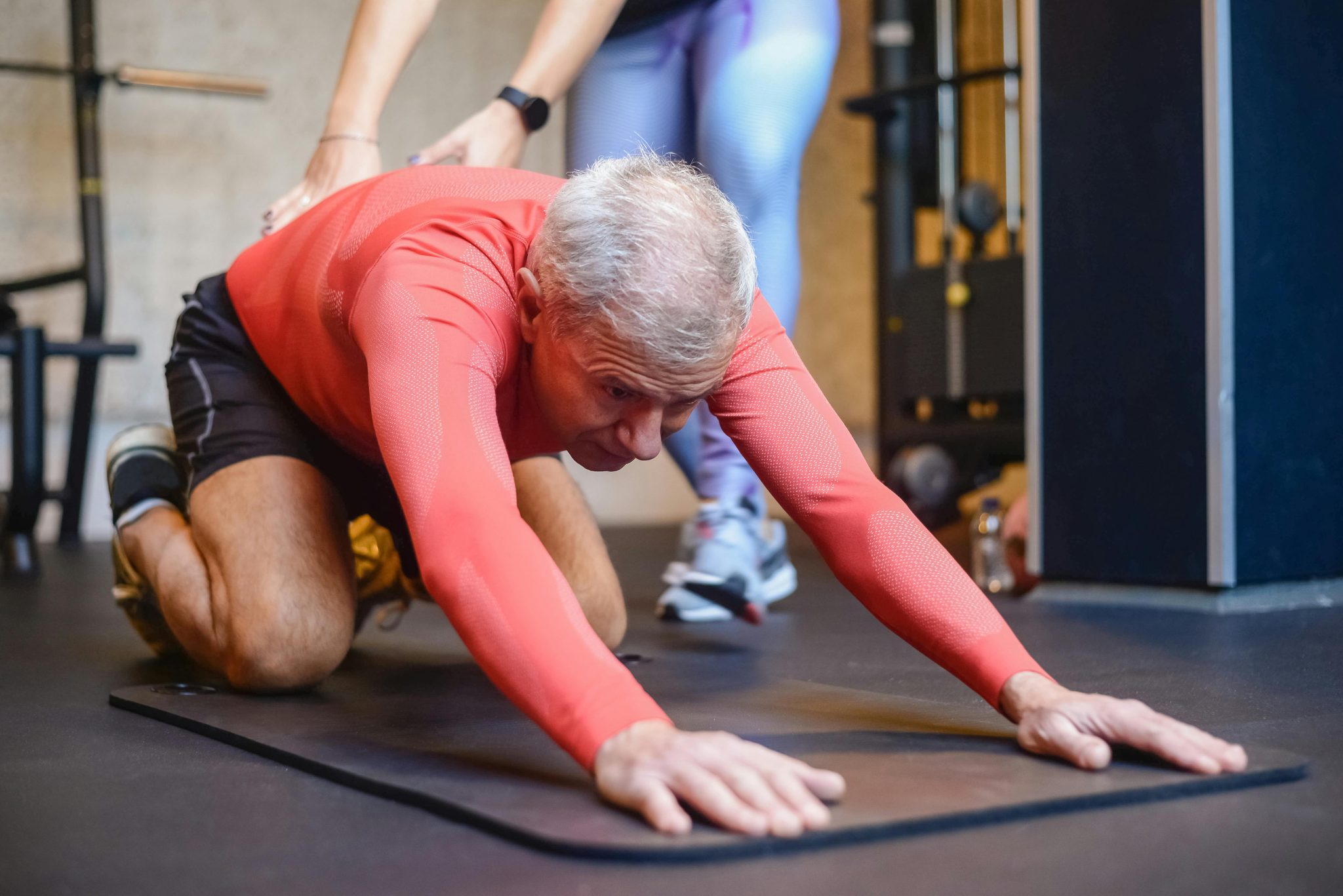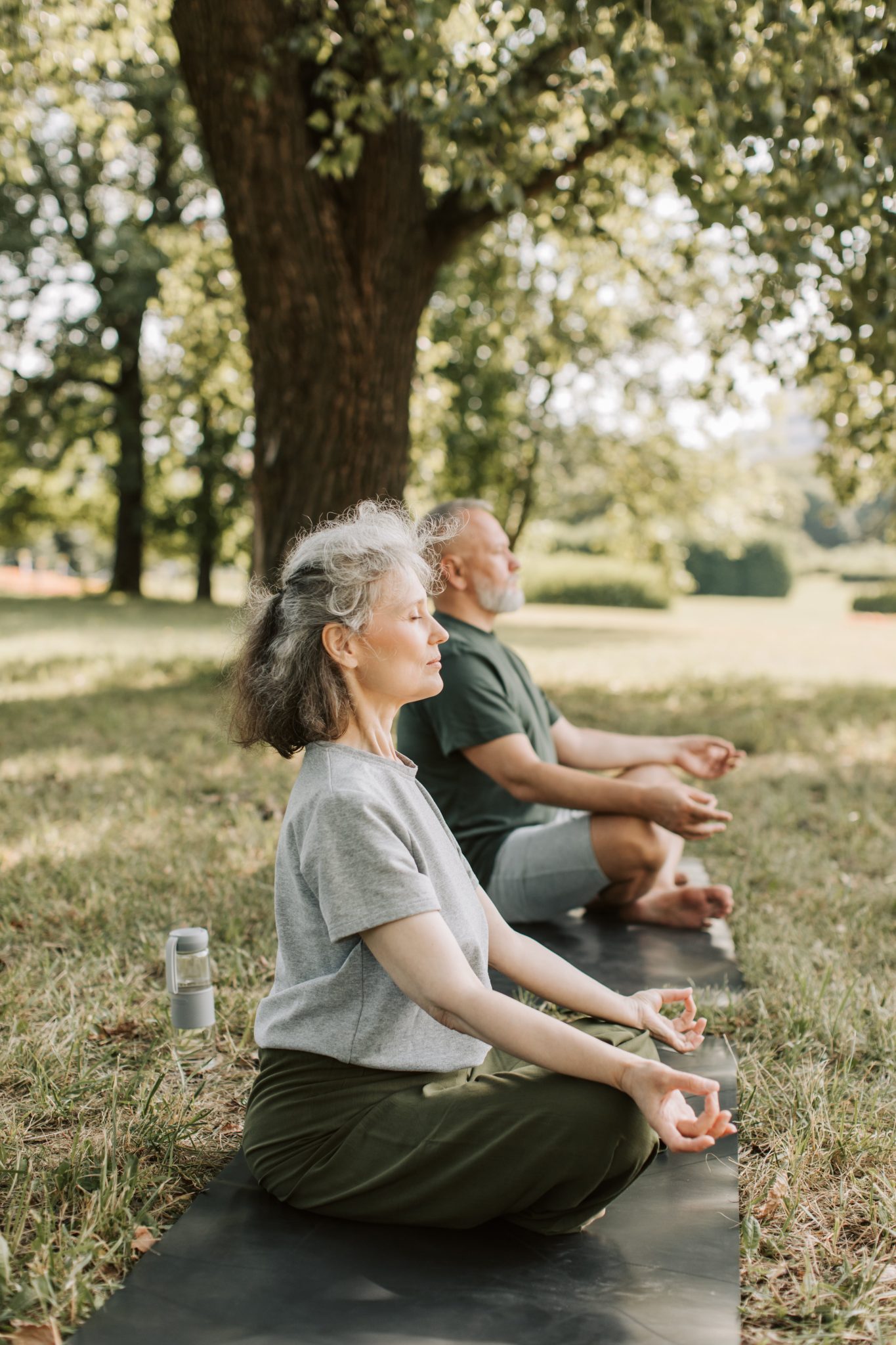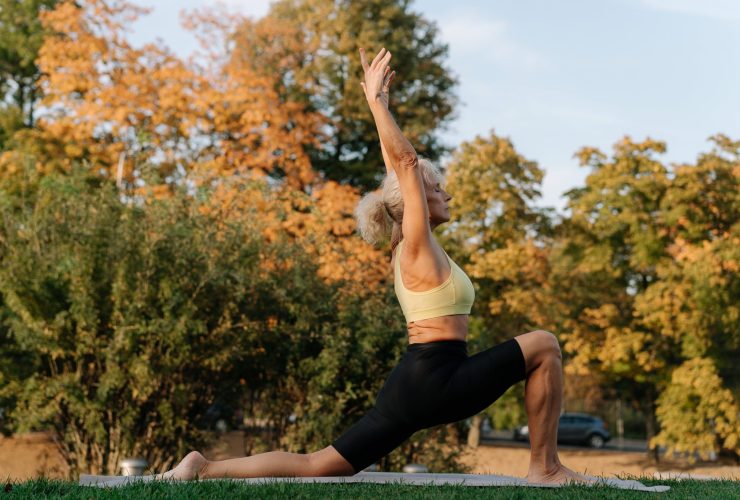The golden years are often marked by reflections on past experiences and aspirations for peace and well-being. As such, the pursuit of mental well-being in seniors has become a critical area of focus, with practices like mindfulness and meditation offering a beacon of hope. With the promise of enhancing overall senior health, these timeless techniques garner attention for their role in fostering wellness in older adults.
Mindful aging isn’t just a phrase; it’s an approach that intertwines the wisdom of years with the calm of present moments. Whether through meditation benefits for aging individuals or simple, daily meditation practices for older people, the evidence points towards a significant positive impact. Embracing mindfulness bolsters emotional resilience and enhances cognitive function, setting the stage for a life steeped in serenity and clarity.
Exploring the Impact of Mindfulness on Aging
As the tapestry of our lives becomes richer with age, incorporating mindfulness offers more than a serene reprieve; it brings forth profound cognitive and emotional benefits, crucial for embracing the golden years. Advancements in scientific research on mindfulness in seniors have illuminated its substantial role in promoting mental health and stress alleviation, making it a cornerstone in the pursuit of mindful aging.
The Science Behind Mindfulness in Seniors
Emerging research from esteemed institutions, including the National Institute on Aging, solidifies that mindfulness extends its benefits beyond ephemeral tranquility. Scientific studies have unveiled that regular practice can induce tangible structural changes within the aging brain, encapsulating enhancements in areas associated with memory and executive function. Indeed, these revelations position mindfulness as a practice and a tool for cognitive preservation.
How Mindfulness Enhances Mental Clarity
The journey through cognitive aging need not be fraught with forgetfulness and confusion. Insights from cognitive neuroscience indicate that mindfulness exercises can bolster mental clarity and focus, fostering an environment in which neurons thrive. Therefore, mindfulness’s cognitive benefits are twofold—an aid for memory retention and a beacon guiding toward sustained mental clarity in an aging population.
Improvements in Attention
Mindfulness and meditation can help older adults improve their ability to sustain attention and stay focused on the present moment. These practices have been found to reduce mind-wandering and enhance cognitive control, allowing older adults to concentrate better on tasks and ignore distractions. By training the mind to be present and attentive, mindfulness and meditation can sharpen cognitive performance and enhance overall attentional abilities in older age.
Enhancements in Memory
Engaging in mindfulness and meditation practices can positively affect different aspects of memory, such as working and episodic memory. These practices can improve older adults’ ability to hold and manipulate information in their minds, leading to enhanced working memory capacity. Research also suggests that mindfulness and meditation can improve episodic memory—remembering specific events or experiences—by promoting better encoding and retrieval processes.
Benefits for Executive Functions
Executive functions, which involve processes such as problem-solving, decision-making, and planning, can be improved through mindfulness and meditation. These practices have been found to enhance older adults’ cognitive flexibility, allowing them to adapt to new situations and switch between tasks more efficiently. By reducing cognitive decline and improving executive functions, mindfulness, and meditation can help older adults maintain their independence and autonomy in daily activities.
Reducing Age-Related Stress with Mindfulness
The golden years can sometimes cast long shadows of stress and worry, but mindfulness emerges as a beacon of hope. With techniques rooted in age-old wisdom, seniors find solace and strength in simple and profound practices. Empirical evidence suggests these techniques—ranging from breath work to meditative movements—can dramatically reduce stress, anxiety, and depression, showcasing the undeniable potential of mindfulness as a cornerstone in the art of aging gracefully.
Effect of Mindfulness on Mental Health
The emotional toll of aging can be overwhelming for older adults and mindfulness practices offer a powerful antidote. By promoting self-awareness, acceptance, and compassion towards oneself, mindfulness can help seniors cultivate resilience and cope with the challenges that come with aging. Studies have shown that regular practice can improve overall mental health in older adults by reducing symptoms of anxiety and depression. Here are a few other benefits of mindfulness in terms of mental health:
- Reduced symptoms of anxiety and depression
- Improved emotional resilience
- Better emotional regulation
- Increased acceptance and experience of negative emotions
- Enhanced social relationships
- Improved familial and social support networks
By incorporating mindfulness and meditation into the lives of older adults, we can help them experience excellent emotional health, navigate challenges with resilience, and foster meaningful social connections.
Mindfulness and Meditation Techniques for Seniors
As we celebrate the wisdom of age, it’s essential to cultivate relaxation practices that cater to the evolving needs of our bodies and minds. Embracing easy meditation techniques and guided mindfulness exercises can significantly enhance the quality of life for older adults. Engaging in beginner mindfulness practice for seniors can provide a serene pathway to tranquility and contentment in elder care.
Discovering methods such as meditation for elder care and relaxation practices for aging individuals can be joyful and immensely beneficial. Here’s a variety of approachable practices that can be effortlessly incorporated into your daily routine:
- Simplified Breathing Exercises: Find a comfortable seated position and concentrate on slow, deep breaths. This fundamental practice calms the nervous system and encourages a mindful presence.
- Guided Visualization: Through audio recordings or classes, allow the soothing voice of an instructor to guide you through tranquil scenes, promoting peace and clarity.
- Everyday Mindfulness: Integrate mindfulness into routine activities. Savor the flavors of a meal or feel the textures and sounds on a leisurely walk, grounding yourself in the current moment.
- Creative Practices: Engage in creative activities like painting, writing, or gardening. These practices can promote mindfulness by encouraging focus and exploration of the present moment.
- Body Scan Meditation: Lie comfortably and tune into different sensations throughout your body, releasing tension and promoting relaxation.
- Qi Gong and Tai Chi: These meditative movements combine gentle exercises with mindfulness, promoting overall physical and mental well-being.
Exploring these techniques enhances individual well-being and can be a bonding experience through shared classes or groups. While personal practice is valuable, consider joining a community of like-minded individuals to enrich your journey:
- Local senior centers often provide meditation classes for varying mobility levels and health conditions.
- Many online platforms offer guided mindfulness exercises accessible from the comfort of home.
- Diverse books and audio resources tailored to the interests and abilities of seniors await, promising a self-paced, instructive approach to relaxation practices for aging individuals.
Embracing a Mindful Future for Seniors
As we navigate the complexities of aging, embracing practices that support our mental well-being becomes increasingly crucial. Mindfulness offers a holistic approach that encompasses the emotional, cognitive, and social aspects of aging.
As seniors invest in mindfulness, they chart a course for a prosperous future with exploration and self-discovery. Let us carry forward this mantle of meditation, ensuring that our later years are just as fulfilling and meaningful as our youth.
At Total Life, we believe in empowering older adults to lead fulfilling and independent lives. Through mindfulness techniques guided by our compassionate professionals, we provide seniors with the tools to support their mental health and well-being. Join us on this journey towards a mindful future for all. Embrace the beauty of aging gracefully with mindfulness by your side. Remember, there is always time to start your mindfulness journey. So why not begin today? Let us all take a deep breath and embrace the present moment with open arms. Together, we can create a brighter future for our seniors. Stay mindful, stay empowered! Visit them today at Total Life.com or call 1 800 567 5433.









